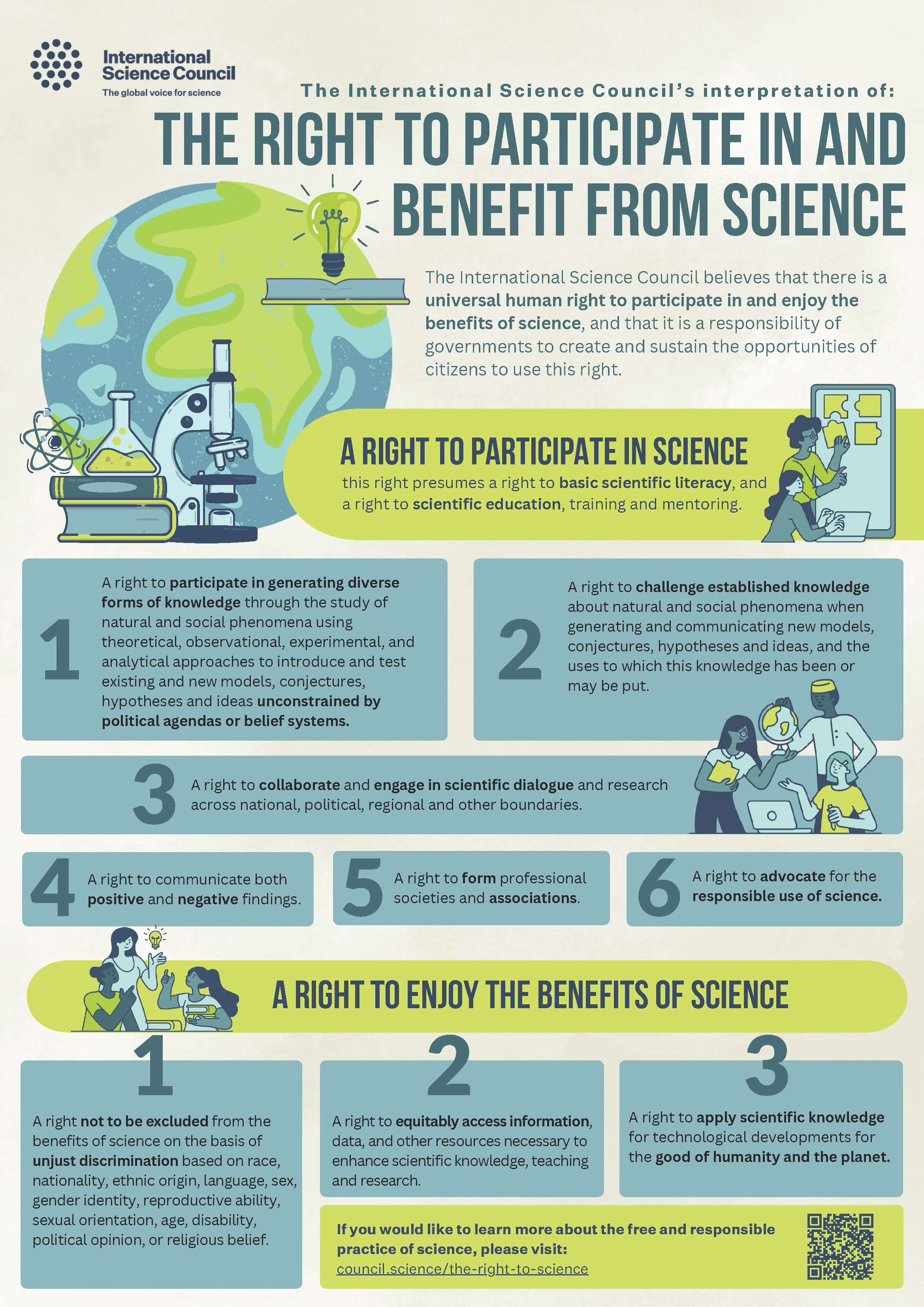The right to participate in and benefit from science
The Royal Society Te Apārangi has endorsed the International Science Council’s interpretation of 'The Right to Participate in and Benefit from Science', recognising science as a human right.
The Right to Participate in and Benefit from Science framework was developed in 2025 by the Committee for Freedom and Responsibility in Science (CFRS), an advisory group within the International Science Council (ISC), of which the Royal Society Te Apārangi is a member.
The vision of the ISC is science as a global public good. This means that science should be a beneficial resource available to all. To realise this vision, science needs to be recognised more widely as a universal human right.
The ISC’s interpretation provides practical guidance for how governments can enable the right to science. This includes:
- protecting academic and scientific freedoms
- guarding against misuse of science
- promoting equitable and inclusive access to education and knowledge
- supporting open science and sharing of reliable scientific information
- fostering mutually beneficial relationships between all scientific fields and Indigenous knowledge systems.
Associate Professor Krushil Watene, a Member of CFRS (2022–2025), says about the framework:
"The ISC's interpretation of the right to participate in and benefit from science recognises that diverse forms of scientific knowledge and practices of knowledge-making not only exist but are needed to solve the challenges we collectively face. Māori knowledge, for instance, generates insights into the diverse land- and water-scapes of Aotearoa New Zealand."
"The ISC's interpretation reminds us that we, as researchers and policymakers, have a responsibility to protect and enable these diverse knowledges and ensure that our practices foster trust, reciprocity, and real partnership with Indigenous communities."
"The interpretation does more than just reinforce the value and role of science for all communities around the world. It requires us to remember that holders and users of scientific knowledge have correlative responsibilities to open-mindedly engage with other knowledge systems, recognise globally diverse needs and aspirations, and construe value beyond mere economic benefit alone."
Royal Society Te Apārangi President, Distinguished Professor Dame Jane Harding DNZM FRACP FRSNZ, says:
"The Royal Society Te Apārangi endorses the International Science Council’s interpretation of ‘the right to participate in and benefit from science’. The Society will continue to support the work of the Committee for Freedom and Responsibility in Science, and will promote the right to science in Aotearoa New Zealand. This aligns with the Society’s purpose as set out in our long-term strategy to 2042: to enable science and research to be shared for the benefit of all."
The Royal Society Te Apārangi supports the ISC’s Committee for Freedom and Responsibility in Science (CFRS) by hosting its Special Advisor.
Related links
- The International Science Council’s interpretation of The Right to Participate in and Benefit from Science
- International Science Council (ISC)
- Committee for Freedom and Responsibility in Science (CFRS)

